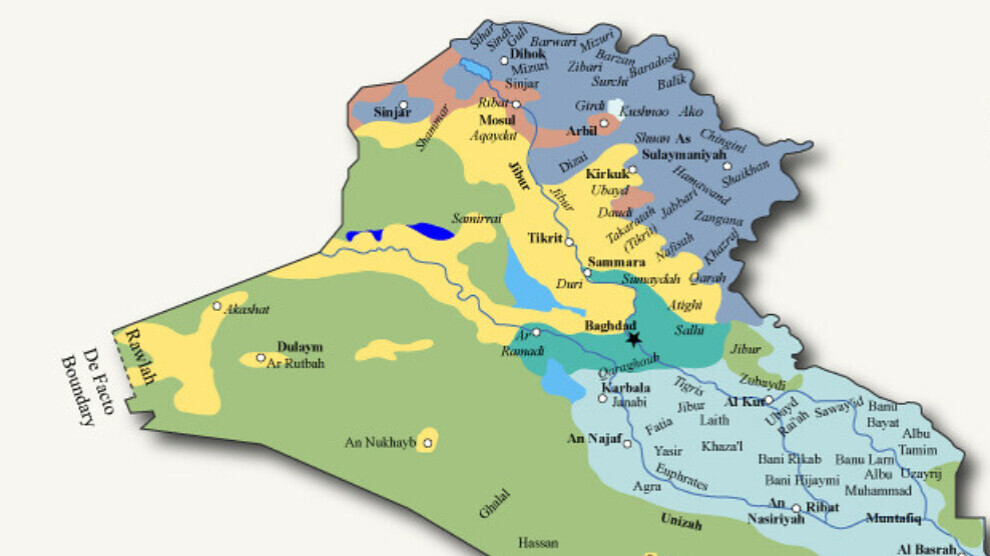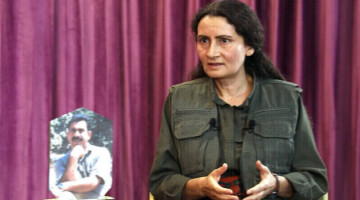Turkey's policy of occupation and annexation in Iraq and Southern Kurdistan (Northern Iraq) in recent months continues to have repercussions in the region. The Erdoğan government, which aims to further escalate the war against the Kurds, shows the multifaceted side of the war with the concept it has developed with the Hewlêr (Erbil) and Baghdad administrations to achieve the ultimate goal. It is also wondered how the political and military initiatives that have been going on for months will be reflected on the fragile politics of Iraq. The future of the Mohammed Shia' al-Sudani government, known for its passive attitude against the Turkish occupation, is among the most debated issues these days.
The Behdînan initiative of Turkish diplomacy
The relations developed with the Iraqi central government, especially the "Development Road", are related to the Turkish Republic's handling of Iraq's instability as an opportunity. The "acquiescence" of Baghdad to the occupation of Kurdistan on the basis of energy and economic "aid" was the most prominent initiative of Turkish diplomacy in Iraq throughout 2024. Ankara, which has not yet put an end to such pursuits, also aims to prevent the reactions that may rise due to Iraq's many-voiced politics. As a matter of fact, the practices in Behdînan today are reflected on the ground in favour of the Turkish Republic as a result of these policies.
Conflicts of the Shiite-Sunni bloc
Although all channels are trying to create the perception that all parties in Iraq are against the Kurdistan Freedom Movement, the proxy wars between the Turkish Republic and Iran are also making themselves felt in the region. Within the scope of Tehran's moves against Ankara's expansionism in Iraq, launched in 2021, Tehran continues to launch operations against all partners of the Turkish Republic in Iraq. In the elections held in the same year, the Sadr Movement, the Iraqi Taqadum Party led by Muhammad Halbousi and the KDP formation were shaped as the alliance of the Turkish Republic in Iraq. Iran, on the other hand, sees this as a Sunni bloc against itself and is devoting all its power in Iraq to the destruction of this alliance.
Tehran's operations against the 'Ankara alliance'
Taking action after the elections, Tehran first turned towards the Sadr Movement, the largest section of the alliance. Having eliminated Sadr and his circle from Iraqi politics, Iran then targeted some military and political formations affiliated to Sadr. The elimination of Sadr, who signalled a return to Iraqi politics under the name of 'National Shiite Movement' after a two-year break, also affects the change of balances in Iraqi politics.
Parliamentary presidency pressure
Tehran then dismissed Halbousi, who was elected as the Speaker of the Iraqi Parliament through the Iraqi Federal Court under its influence. Continuing its political and military pressures, it has not allowed the election of the Iraqi Parliament Presidency for 9 months.
Last step: KDP
Lastly, Tehran also turned to the KDP and had many decisions taken by the same court over the elections in Southern Kurdistan. The KDP's adventures with the Erdoğan government have caused the people of Southern Kurdistan to suffer great blows, both administratively and economically. The process that opened the status of Southern Kurdistan to discussion after 30 years is still ongoing.
Reflections of Shiite contradictions between Qom and Karbala
Iran's biggest problem with Iraqi Shiites stems from the imposition that the Shiite centre is the Iranian city of Qom. The Shiite Arabs, on the other hand, state that the politics imposed by Iran is Persian Shiism and that the memory of Karbala and Najaf should be the centre. These two views occasionally lead Shiite political circles in Iraq to form political, military and economic alliances with the Sunni Arab world. Due to the different views between the parties, there are frequent changes in partners and alliances.
The return of Sadr
Sadr's return to the political arena by establishing relations with the US in the new period may play a more triggering role in the crisis and contradictions in Iraq. In this sense, Sadr's recent relations with Saudi Arabia and the United Arab Emirates are linked to the developments. In the same context, the Barzanis' relations with the UAE over the elections are considered on this basis and evaluated as the moves of the other side.
Complicity in occupation will bring down the al-Sudani government
While the current picture confirms an intricate political scene for Iraq in the coming days, the stance against the new plans and agenda of the Turkish occupation, which is the main agenda, will play a decisive role in the future dynamics in the country.
The al-Sudani government, one of the first stops where this situation will be reflected, has closed its ears to the voice of the Iraqi people. The "silent partnership" of the al-Sudani government, which is also preparing for the Iraqi general elections planned to be held in 2025, causes reaction in the public. Likewise, the Iraqi people, who have a vivid memory of the Turkish occupation, remind that the government has the potential to launch major protests if it takes further steps. While this situation has a decisive role for the future of the al-Sudani government, the steps developed so far are working in the direction that the current government cannot come back to power.
Exchange between Ankara and Baghdad
Another important issue for the parties is what will happen to the agreements made by the Turkish Republic on the basis of new occupation plans in Iraq, where governments change frequently. Trying to establish deep relations with Baghdad on the basis of the "Development Road" project, Ankara held the second meeting for the project and started to export electricity to Iraq again. On the other hand, the Turkish army is allowed to move freely in Iraq and Southern Kurdistan territories. The efforts to criminalise the Kurdistan Freedom Movement in Iraqi public opinion are also a result of the bilateral relationship.
What will happen to Erdoğan’s agreements if al-Sudani leaves?
Seeking to secure the agreements it has made, Ankara is also working to survive with the least damage in a possible change in the context of Iraq's daily changing political balances. On the other hand, all indications are that the government will change. The fact that the incoming new government does not undertake the "agreements" of the previous government has almost become characteristic in Baghdad. While this is one of the biggest fears of Ankara, it is trying to convince the Iraqi state with all its institutions and dynamics as soon as possible.














